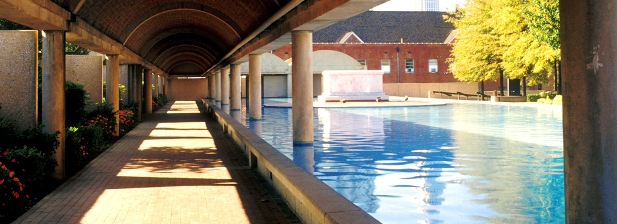The mile-and-a-half stretch of downtown Atlanta’s Auburn Avenue, known as Sweet Auburn, is the birthplace of Rev. Martin Luther King Jr. and where the city’s vibrant African American community came into its own during the 1890s. During the years of enforced racial segregation in the early 20th century, Auburn Avenue was so prosperous that local civic leader John Wesley Dobbs declared it the “richest Negro street in the World”, and the nickname Sweet Auburn stuck.

The neighbourhood fell into decline following World War II and slid into an especially bad state by the 1970s, the victim of depopulation, crime and the construction of Interstate 75/85, which crudely split the district in two. It earned its National Historic Landmark designation in 1976 and the Historic District Development Corporation soon formed to reverse its fortunes. Since then, residents have started moving back into the neighbourhood, and a number of businesses are following.
Today, many of Sweet Auburn’s most significant buildings are open for tours. Start off at the African American Panoramic Experience, an engaging, highly interactive museum with a re-creation of the Yates & Milton Drug Store, opened in 1923 as one of the city’s first prominent black-owned businesses.
At the Martin Luther King Jr. National Historic Site, park rangers lead tours of the King Birth Home as well as the Ebenezer Baptist Church Museum, where three generations of the King family preached—it continues to serve a large congregation today. Another important site is the Martin Luther King Jr. Center for Nonviolent Social Change, which his widow, the late Coretta Scott King, established to help spread her husband’s teachings. Freedom Plaza, across the street, is the site of King’s white-marble tomb, inscribed with his words “Free at last.
Free at last. Thank God Almighty I’m free at last.” His wife was interred here following her death in February, 2006.
To visit the Historic district website click here
